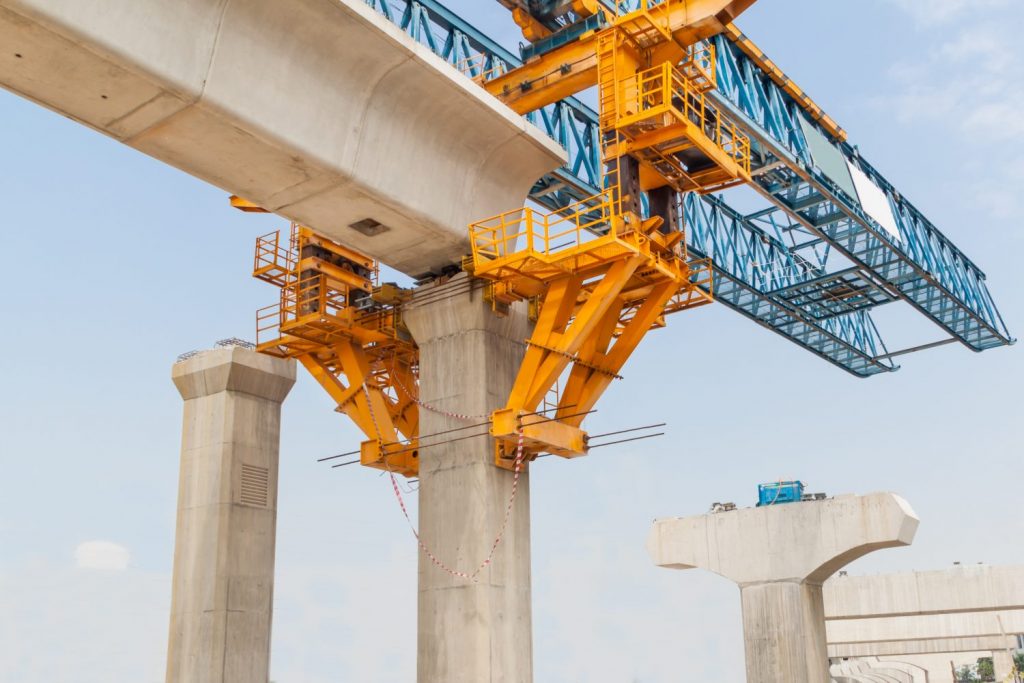
A key senator pledged Wednesday to move ahead with efforts to finance a major infrastructure initiative during a hearing on trucking and transportation needs.
“That’s going to happen. We’re going to continue to be the committee that really does things,” Sen. James Inhofe, R-Okla., chairman of the Senate Committee on Environment and Public Works Subcommittee on Transportation & Infrastructure, said during the conclusion of the hearing, “Freight Movement: Assessing Where We Are Now And Where We Need To Go.”
A bipartisan group of senators endorsed a major infrastructure initiative.
Sen. Ben Cardin, D-Md., warned that decaying infrastructure is going to act as a drag on the economy. “We’ve got to do it and we’ve got to do it soon,” said Sen. Richard Shelby, R-Ala.
The senators’ remarks came after a panel of transportation experts called for a greater role for the federal government in repairing and constructing the nation’s roads, bridges, ports and waterways.
“This isn’t a local, state or even a regional problem, as much as today’s rhetoric might suggest. It’s a federal problem,” said Chris Spear, president and CEO of the American Trucking Associations.
But the senators exhibited little consensus on how to pay for an infrastructure initiative. “We have this reluctance to pay for this stuff,” said Sen. Thomas Carper, D-Del. “A big part of our challenge is to figure out a way for pay for it.”
Several experts endorsed an increase in fuel taxes to fund infrastructure projects. Spear said his group supports a plan it calls the Build America Fund which would raise $340 billion over 10 years with a new 20 cent per gallon fee to be phased in over four years. The fee will be indexed to both inflation and improvements in fuel efficiency, with a 5 percent annual cap. The fee would cost the average passenger car driver about $100 per year, according to ATA.
Spear said the truckers oppose funding infrastructure through the privatization of highway and other infrastructure projects because they view tolls as “double-dipping” after they have already paid for infrastructure improvements through the gas tax.
Mark Policinski, CEO of the Ohio-Kentucky-Indiana Regional Council of Governments, a member of the Coalition for America’s Gateways and Trade Corridors, agreed that infrastructure funding should be raised by increasing the gas tax.
All panelists urged an increased role for the federal government.
Tim Parker, Jr., chairman of Parker Towing Co., who was appearing on behalf of the Waterways Council, called for a change in the funding formula for the Inland Waterways Trust Fund, which finances improvements to inland locks and dams, to a 75 percent federal share and 25 percent local or state share, from the current 50-50 formula.
“Currently, the inland waterways have a portfolio of 25 high priority inland projects either under or awaiting construction. At the current rate, many of these projects will not even begin construction in the next 20 years,” said Parker.
According to Parker, whose Tuscaloosa, Ala., company operates 26 towboats, more than half of the portion of the system that is operated by the U.S. Army Corps of Engineers is now more than 50 years old. “Some system segments, particularly older portions located on the Upper Mississippi, Illinois and Tennessee rivers, are sustained by outdated 600-foot-long locks that are unable to accommodate today’s standard 15-barge tows without engaging in the inefficient and potentially dangerous procedure of “breaking” the tow into two sections in order to pass through the lock,” he told the senators.
David Thomas, deputy executive director of Logistics and Port Operations at the Maryland Department of Transportation’s Port Administration, asked for federal assistance in a major capital project that would raise a 122-year-old Baltimore railroad crossing (the Howard Street Tunnel, owned by CSX railroad) that currently prevents double-stack rail clearance of shipping containers in and out of the Port of Baltimore.
Sen. Sheldon Whitehouse, D-R.I., asked Thomas whether his and other U.S. ports would need additional infrastructure improvements to plan for the sea rise projected by climate change.
Thomas said he has spoken with many of his counterparts at other U.S. ports and all ports will need to consider projected rises in sea levels as they plan capital projects. Among the changes being planned are building newer facilities farther from the water or building facilities, such as storm water vaults, that can account for greater water levels.